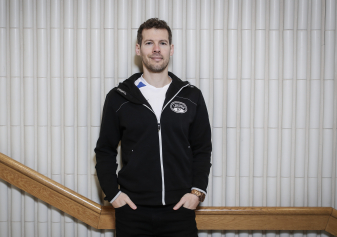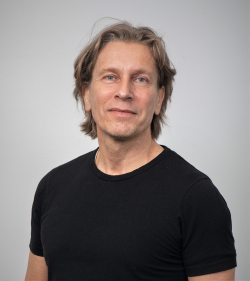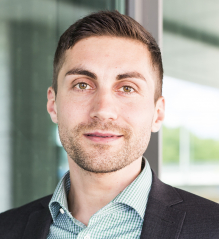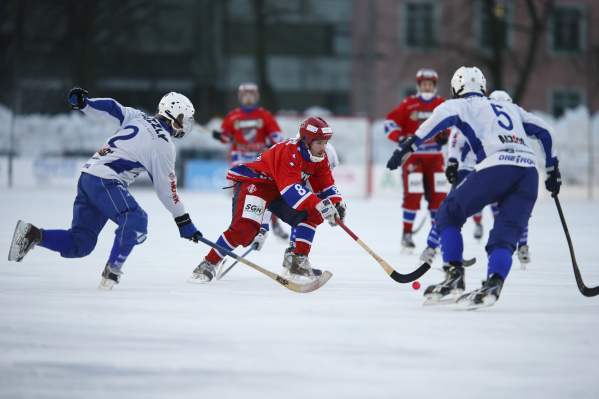Theme session: Elite Athlete's Status and Rights
Torstai klo 12.45–14.15, 1. Lava / Thursday from 12.45 p.m. to 2.15 p.m.
When an athlete takes a stand on human rights, how does the sports system view this? The Elite Athlete's Status and Rights theme session discusses the athlete's rights to take a stand on societal issues and how the athlete's status has evolved over time. Perspectives on the subject are brought from both international and national arenas.
This themesession will be held in English.
Presenters
Professor of Practice Mihaly Szerovay, University of Jyväskylä

Mihaly Szerovay serves as a Professor of Practice, a joint position at the University of Jyväskylä and the Football Association of Finland. Before his current role, he was a Senior Lecturer in Football Studies at Solent University (UK). Mihaly’s research interest lies in the various aspects of sport and globalisation, the professionalisation of football, and the changing field of sport clubs.
How is this a job? The development of football player as a profession
Modern football has been played for over a hundred years. The widening of football’s participant base and its internationalisation created the prerequisites for players to become professional. In England, for example, football has been organised as a professional sport since around the 1880s. Nevertheless, the timing, nature, and development paths of professionalisation have varied from country to country and have mirrored the social, economic, cultural, and political background of the given setting.
The aim of this presentation is to critically discuss the development of football player as a profession. The speech is framed by the history and the globalisation of the game. I will touch upon key areas that comprise the world of work of players such as player career and conditions, institutions of the game, and sustainable work in the football industry (Football Players Association of Finland 2020). I put particular emphasis on athlete rights; not only have footballers stood up for their own rights, but they have increasingly taken a stand on societal issues and engaged in athlete activism. While I draw on cases from various countries, the main focus is placed on the Finnish context.
Kuva: Petteri Kivimäki
Senior researcher Jarmo Mäkinen, KIHU - Research Institute for Olympic Sports
 PhD Jarmo Mäkinen is senior researcher in Research Institute for Olympic Sports, Finland. He has conducted elite sport research and evaluation from various perspectives. As a social scientist, his research interest include social and structural conditions of elite sport systems as well as sport policy, governance and economy.
PhD Jarmo Mäkinen is senior researcher in Research Institute for Olympic Sports, Finland. He has conducted elite sport research and evaluation from various perspectives. As a social scientist, his research interest include social and structural conditions of elite sport systems as well as sport policy, governance and economy.
The career and everyday life of national team athletes in Finland. Findings from the athlete survey.
Audiences’ perceptions of athletes are formed through the media. Although there are many roles available for athletes in the media - such as sport hero, role model, millionaire, social influencer or even criminal - they only cover a small percentage of all athletes. Against these images, this presentation focuses on a larger group of athletes, many of them away from the limelight, perhaps still waiting for their breakthrough. I bring to the fore the daily lives and status of athletes based on a survey directed to Finnish national team athletes (n=782). How they combine a sports career with study or work? What kind of perceptions do they have about themselves, sports, prestige and society?
President Sami Itani, Finnish Athletics Federation
 Sami Itani (D.Sc., b. 1987) is the president of Finnish Athletics Federation and a former decathlete. As sports director, Itani has highlighted the social integration of sports and sports organizations with non-sports stakeholders and networks. Itani has also brought up the need for management by values to reach new audiences and to strengthen the associations overall credibility.
Sami Itani (D.Sc., b. 1987) is the president of Finnish Athletics Federation and a former decathlete. As sports director, Itani has highlighted the social integration of sports and sports organizations with non-sports stakeholders and networks. Itani has also brought up the need for management by values to reach new audiences and to strengthen the associations overall credibility.
Why and how sports organizations can broaden their direct and indirect societal impact in the 2020's.

